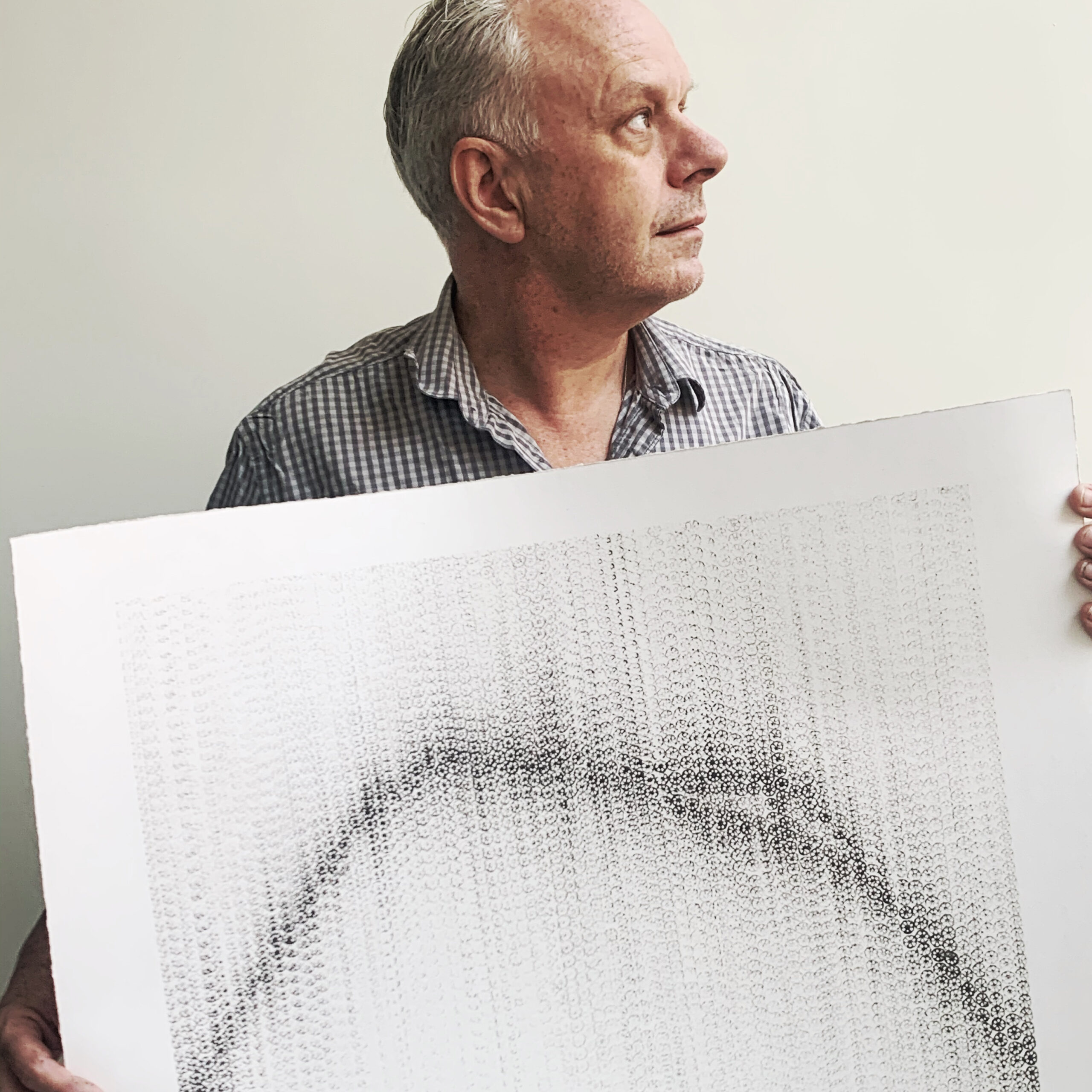Morrison Polkinghorne
For seven years, from 2014 until fleeing back to Australia as a Covid refugee in 2021, Morrison Polkinghorne lived in Cambodia. There he developed a process of making ink created from lotus flowers.
The process became holistic, cyclical and regenerative, a kind of reincarnation of purpose - something appropriate to Buddhist Cambodia. He began by collecting discarded lotus (itself spiritually pertinent to the region) given to him by monastery monks after the flowers and stalks had been donated as temple offerings.
Like a rare distillate his ink is a matter of quality over quantity, as a massive cartload of lotus produces as little as a few cups of ink. Its distillation is involved and time consuming, honed over long years of research through travels across the region; combining techniques from artisanal paper makers and woodblock printers.
Rainwater is collected, lotus petals painstakingly deflowered from stems then burned to char, and distilled in earthenware pots, brewing for a year or longer.
In this way the artist offers a truly holistic circle of life and original environmental approach to art, from pond to studio to display. The final ink has the consolidation of hundreds of people's love and gratitude.
Every single impression on the paintings and art pieces is made from freshly-cut lotus stems stamped in his artisanal ink, then impressed onto paper in lineal design.
Moreover, numerology plays an important role in his art, as every piece records the actual number of impressions applied to paper. As a weaver counting has been a natural part of his working life. While Morrison counts the impressions in his works, he records every single impression next to his signed signature. The smallest work he has made had one lotus impression, and his largest individual painting has 20,184 lotus impressions. With each work his total accumulation increases, and currently his total count is over half a million lotus impressions., and a goal of five million and five to come.

